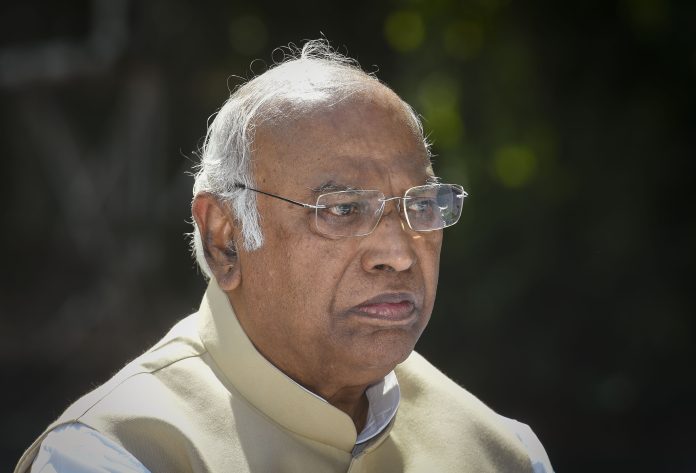Bengaluru, Aug 26: In a surprising turn of events, AICC President Mallikarjun Kharge has come under scrutiny following allegations that his family was allotted 5 acres of land under the aerospace entrepreneurs’ quota by the Karnataka Industrial Area Development Board (KIADB).
This development has sparked questions about how the veteran politician, known for his grassroots activism, suddenly emerged as an “aerospace entrepreneur.”
The allegations were brought to light by BJP Rajya Sabha member Lahar Singh Siroya, who, in a strongly worded letter released on social media, questioned the legitimacy of the Kharge family’s qualification for such an allotment.
“When did the AICC president Mallikarjun Kharge’s family become aerospace entrepreneurs to qualify for KIADB land? Is this a case of misuse of power, nepotism, and conflict of interest?” Siroya asked, tagging the Prime Minister’s Office and Home Minister in his post.
The controversy centers around the allocation of land at the Hitech Defence Aerospace Park near Bengaluru, a growing hub for defense and aerospace innovation in Karnataka.
The land in question, reportedly reserved under the SC quota for civic amenities, was allocated to the Siddhartha Vihara Trust, managed by the Kharge family. Siroya has alleged that this allocation is both illegal and indicative of political favoritism.
The involvement of Karnataka’s Industries Minister MB Patil, who approved the allocation in March 2024, has further fueled the controversy. Siroya has called for a thorough investigation into the matter, stressing that the issue has already reached the Governor’s Office through an RTI activist.
Siroya has urged the Kharge family to relinquish the land.
This incident has sparked widespread debate about the ethical implications of politicians and their families engaging in business ventures, particularly in sectors closely linked to national security.
As the call for an investigation grows louder, the spotlight remains firmly on Kharge and the broader issues of power, privilege, and accountability in public life. (Agencies)
Trending Now
E-Paper


